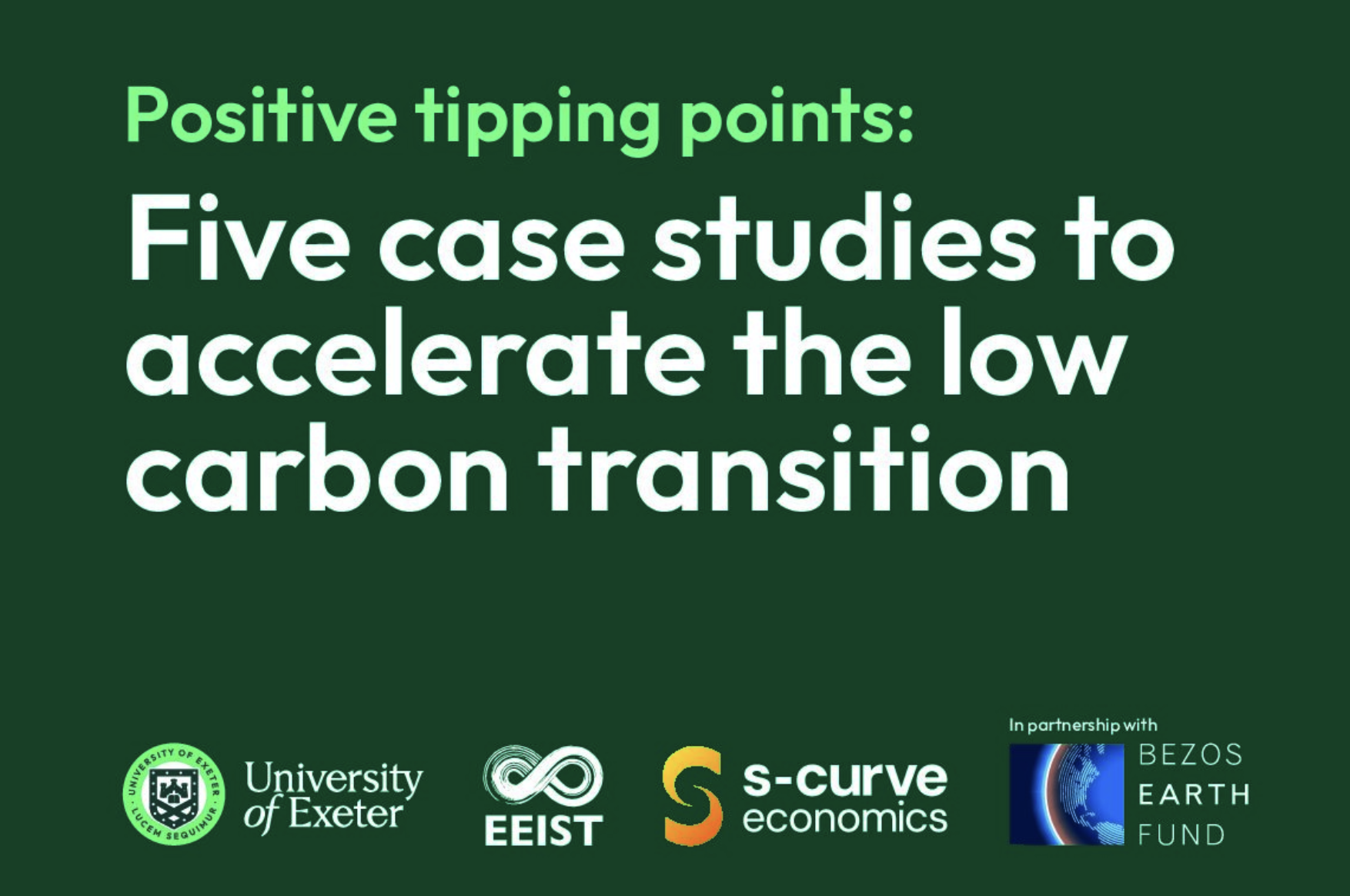September 2024
Tipping points occur when small interventions lead to large changes, typically driven by self-amplifying feedback loops. In the low carbon transition, ‘positive’ (helpful) tipping points can occur when clean technologies or sustainable solutions become more affordable, accessible, or attractive than fossil fuels. This collection of five case studies identifies potential tipping points in the transitions towards electric vehicles, solar power with energy storage, low carbon hydrogen, heat pumps, and alternative proteins, and highlights the policy levers that can be used to cross these tipping points more quickly.
Key findings:
- A zero emission vehicle mandate is probably the single most effective policy to drive the transition to electric vehicles – and coordinated action among countries with the largest car markets can further accelerate the reduction in electric vehicle costs.
- The solar power and energy storage tipping point can be brought forward by a range of policies including long-term contracts guaranteeing demand or price, power market reform, grid expansion and accelerated permitting.
- To establish low carbon hydrogen and ammonia as options for decarbonisation, demand creation policies are essential, such as mandates, subsidies, or public procurement. Financial incentives and demonstration projects can also accelerate progress.
- Heat pump mandates could be the most cost-effective policy for the decarbonisation of heating. While not yet commonly used for heat pumps, the effectiveness of clean technology mandates has been demonstrated in the transition to electric vehicles.
- Policies that can bring forward tipping points in alternative proteins include public funding for R&D, public procurement, financial incentives, and targeted transition payments to farmers.

